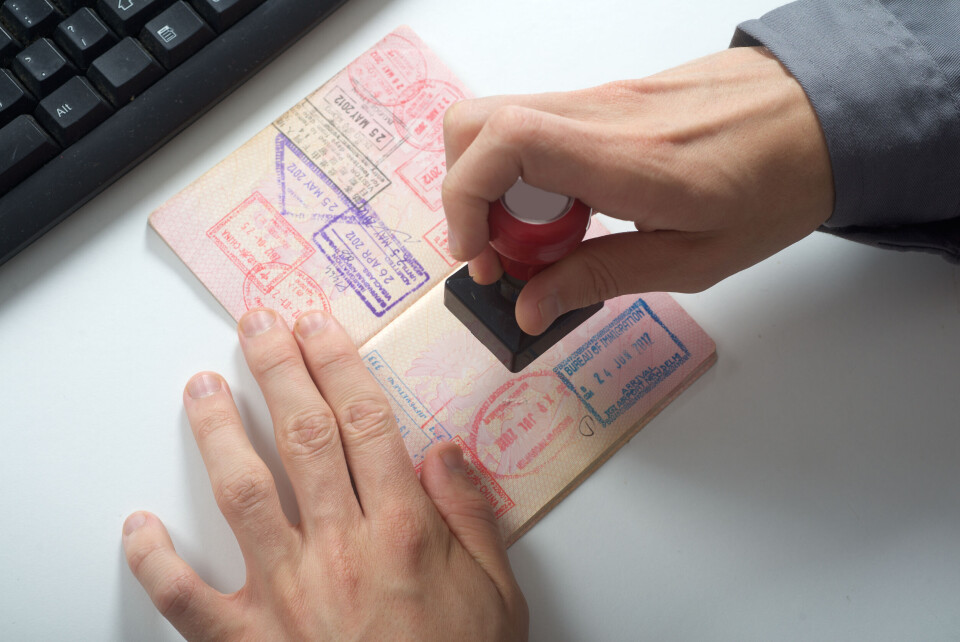-
What you need to know about French civic tests for residency and citizenship
Cultural sessions now offered to newcomers undergoing the Contrat d’intégration républicaine (CIR) process via the Ofii immigration service
-
Five-year WA card holders in France reminded to apply for renewal in good time
If you obtained your card in 2021, you should apply to renew it two months before the expiry date
-
Do I need separate caravan insurance in France?
Fixed and mobile models have different rules and coverage
Coming to France from UK: Temporary visitor visas and passport stamps
Many second-home owners are looking at this visa option so as to be able to spend more time in France. We look at how passport stamps work with regard to this

Reader question: I believe that our visa de long-séjour ‘visiteur’ visas are about to be delivered, giving us 180 days stay available within a year's validity. Given that these are multi-trip visas, the question is whether any of these trips in or out can be via another Schengen country (specifically Geneva airport). Or does the fact that I would not have French exit stamps mean the clock on my 180 days in France would still be ticking?
From our information, temporary long-stay visas are not issued for a set number of days within a longer period, but the visa is dated, for a set period, usually from four to 12 months (though typically not more than six).
So, probably your visa will be issued for a set six-month period, or it is possible it will be issued for a set 12-month period.
This is based on our previous briefings on visa types by Interior Ministry officials and is also confirmed by Allison Lounes of Your Franceformation, who helps non-EU citizens to move to France.
One consideration, however, if you were to obtain a 12-month visa, would be that you may wish to avoid staying more than 180 days (roughly half a year) in total in any given calendar year so as not to risk becoming seen as a French tax resident and having ‘moved’ to France.
When should you have your passport stamped?
With regard to passport stamps, European Commission officials told us that long-stay visa holders, similar to those with a residency card such as a ‘Withdrawal Agreement’ card for Britons who were living in France before 2021, should not be subject to stamps travelling in and out of the Schengen zone.
They said this applies either with regard to the country that issued the card or visa or if entering or leaving via another Schengen country.
They said the purpose of stamping is to calculate the length of short-stay visits by third country citizens (who, apart from certain nationalities, not including the major English-speaking nations, do not need visas for trips for up to 90 days in a 180-day period).
This does not apply to long-stay visa holders or holders of residency cards.
What happens if passport stamped when it should not be?
They added that should you have your passport stamped at any point, it makes no difference to your rights if you show the visa in the passport the next time you enter or leave.
Britons with residency cards have in practice reported mixed experiences with stamping since British citizens ceased to have free movement in the EU last year, though in theory if they proactively show the card – or in your case draw attention to the visa – it should not be done.
Ms Lounes, an American living in France, said in her experience French border police often stamp non-EU citizens’ passports regardless of visas or cards, but it should not not make a difference, especially if you make sure to show your card/visa upfront on leaving the Schengen area next time to avoid any ‘overstaying’ fines.
Read more: €198 fines for overstaying 90/180-day rule
As previously mentioned, The Connexion was told by French ministry officials that typically long-stay temporary visitor visas are for up to six months, notably as staying for longer than this may imply an intention to move to France.
However, if you are issued with a 12-month one, then from our information, your time as a ‘visitor’ and not a tax resident, would not be specifically checked by passport stamps, but would more be a matter of fact with the time period clearly defined on the visa.
See the links below for more on how France defines tax residency, but one test is whether you spend more of your time there than anywhere else in a given calendar year.
We doubt that a one-off occurrence of spending a little over six months in a given year would be picked up on by the French authorities, but we would suggest avoiding it to be scrupulous to the rules.
Staying too long in France may also affect the validity of some insurance policies, eg. if you are bringing over a car to France on your trips.
Read more
How France defines tax residency
French residency makes financial sense for second-homers
A guide to the temporary long-stay visa for France, and how to apply
























